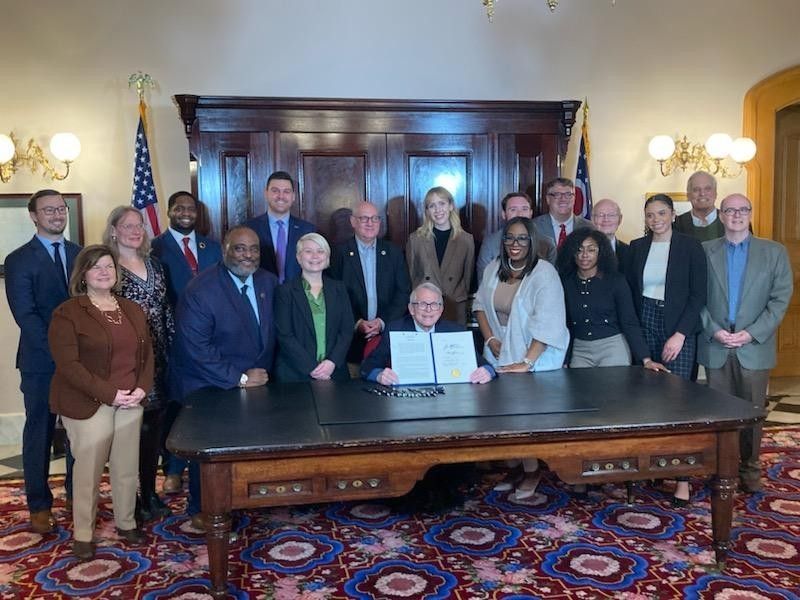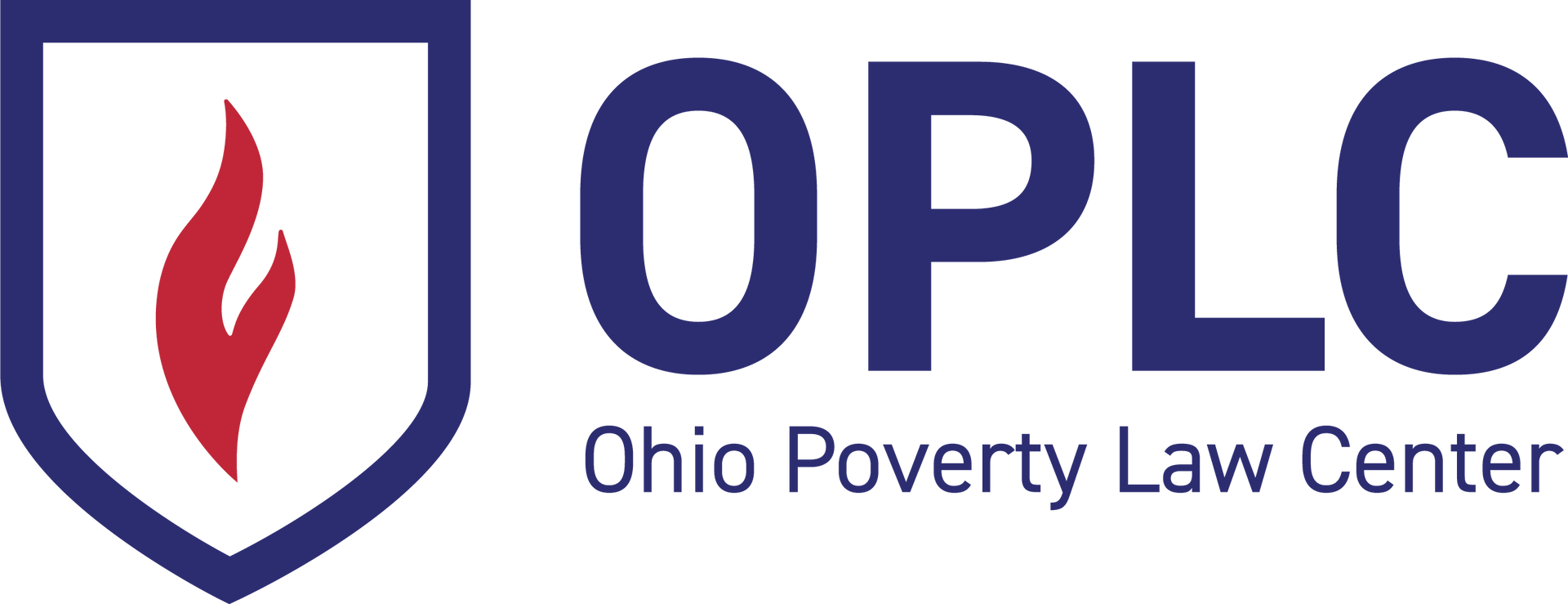JANUARY 2025 NEWSLETTER
Governor Signs Bill to Curb Debt-Related Driver's License Suspensions
House Bill 29, legislation that will remove many of the financial barriers that lead to driver’s license suspensions was signed by Governor Mike DeWine on January 8, 2025. With the adoption of this policy, Ohio became the 25th state to move away from debt-related penalties.

We were thrilled to be on hand when the Governor signed the bill.
The work now begins to implement the new policy and put Ohioans back in the driver’s seat. Thirty days after the law’s effective date, license suspensions for failure to pay a court fine or fee will be removed retroactively and without the imposition of reinstatement fees. This will help hundreds of thousands of Ohioans get their licenses back and the changes in the law will dramatically reduce future suspensions.
OPLC led a large and diverse coalition of advocates and impacted Ohioans to support the legislation over the last two years. Throughout the Senate and House committee process, nearly 40 witnesses ranging from legal aid societies to employment advocates to business leaders to conservative and taxpayer groups submitted proponent testimony.
The following provisions were included in House Bill 29:
- Eliminates the driver’s license suspension for failure to pay a court fine or fee.
- Applies the removal of license suspensions for failure to pay a court fine or fee both retroactively and automatically, without imposition of reinstatement fees.
- Removes the possible penalty of a driver’s license suspension for a drug abuse offense, unless the offense relates to causing others to use, manufacture, or traffic and the offender used a vehicle to further the commission of the offense.
- Reduces the lookback period for driving without insurance offenses to be considered repeat offenses from five years to one year.
- Eliminates school truancy as a reason for license denial or suspension.
- Authorizes a person whose driver’s license is suspended for failure to pay child support to file a motion with a court for limited driving privileges in all circumstances, not just when the motion is made during contempt proceedings as under current law.
For years, debt-related driver’s license suspensions blocked thousands of Ohioans from finding stable jobs and businesses from accessing quality talent. House Bill 29 removes these unnecessary barriers to employment and hiring—a significant win for business and communities. This legislation will help keep Ohioans on the road, bolster the state’s workforce, and break costly cycles of poverty and punishment.
"Pay Stub Protection Act" Enacted
House Bill 106, which requires employers to provide earnings and deductions statements to each employee, was signed by Governor Mike DeWine on January 8, 2025. The bill—called the “Pay Stub Protection Act”—will be effective 90 days after it is signed and filed with the Secretary of State.
Under the bill, an employer must provide each employee with a written or electronic statement or access to a statement of the employee’s earnings and deductions for each pay period on the employer’s regular paydays. If an employer does not provide a statement or access to a statement, an employee can make a written request to the employer, who must answer that request within ten days.
The Ohio Poverty Law Center supported this legislation and provided testimony in both the House and Senate. We were pleased that this common-sense legislation was approved at the end of the last session.
Our Policy Priorities for 2025
At the start of each new two-year legislative session, we identify our policy and advocacy priorities to help Ohioans living and working in poverty. Based on issues identified by our legal aid colleagues and the current political climate, this session we will work to make meaningful progress in the following policy areas:
- Protecting and expanding tenant rights by establishing a statewide process to seal eviction records and increasing transparency on property ownership and their representatives.
- Reducing lead poisoning by increasing resources for prevention, remediation, and treatment, and giving the Ohio Department of Health the authority to oversee contractors engaging in lead remediation.
- Reducing the impact of medical debt by prohibiting credit reporting of medical debt, prohibiting filing an execution or attachment against a consumer’s principal residence, and capping interest rates, while including meaningful language access for limited English proficiency population.
- Expanding the reach of Legal Aid by increasing resources for their work.
- Giving kinship care providers tools to enroll children in school and consent to medical care by expanding the use of the grandparent Power of Attorney and Caretaker Affidavit to other qualified caretakers.
- Ensuring parents know their rights when considering using an EdChoice voucher by requiring the Ohio Department of Education and Workforce to create a disclosure form that outlines the differences in rights and responsibilities for students with disabilities between public and private schools.
In addition to our proactive advocacy work, we will keep our eyes open for policies that could reduce access to public benefits and weaken tenant rights.
